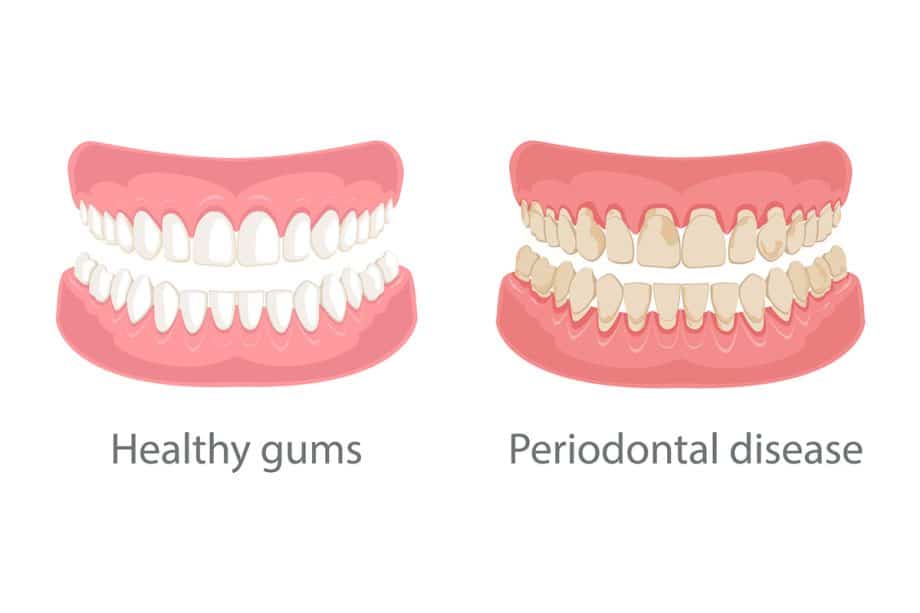Gum health is a major oral health concern, with over 46 percent of adults over 30 having signs of gum disease. A lack of good oral hygiene is the primary cause of gum disease.
Gum disease is also called periodontal disease. The condition can lead to swollen, painful gums, bad breath, pus along the gums, and tooth loss in its later stages. Prevention and controlling gum disease early on are the best ways to protect your teeth in the long run.
This blog will explain what triggers gum disease, how this problem can affect your oral and overall health, and how to treat and prevent it to save your teeth.
Causes of Gum Disease
If you do not practice good brushing and flossing habits, plaque bacteria will stay on your teeth and harden into tartar or calculus. Tartar buildup causes inflammation and infection of the gums.
Symptoms and Stages of Gum Disease
Gingivitis
The problem begins as gingivitis, an early-stage infection with symptoms like swollen, bleeding, and tender gums. You probably have gingivitis if your gums bleed when you brush or floss.
If you notice symptoms at this early stage, it is possible to reverse the condition and return your gums to full health. Schedule a dental cleaning and apply yourself to maintain excellent oral care. If you step up your oral care routine now, you may be able to beat gingivitis and prevent serious problems from arising in the future.
Early Periodontal Disease
After gingivitis, the condition worsens to the point where gums become swollen and sore. Plaque on the teeth hardens into tartar, creating deep pockets between the teeth and gums. Periodontal pockets harbor infection.
Some of the symptoms that indicate early gum disease include:
- Puffy, swollen gums
- Sensitive teeth
- Bad breath
- Receding gums
Moderate Gum Disease
Moderate gum disease includes the symptoms above and an increased chance of tooth decay. Teeth may become mobile or even loose. At this stage, the jaw may also become infected.
Symptoms may include:
- Pus between the teeth and gums
- Loose teeth
Advanced Gum Disease
At this stage, tooth loss may be inevitable. Advanced periodontitis can cause chronic pain and jawbone infection. We can attempt to save your teeth through periodontal splints and other methods, but the disease may have damaged your gums to the point where the teeth cannot remain.
The Effect of Gum Disease on Your Overall Health
Researchers link gum disease to the following systemic health conditions:
- Type 2 diabetes
- Heart disease
- Stroke
- Preterm birth
- Irritable bowel disease
- Mental health issues
- Worsened COVID-19 disease
The connection between systemic health conditions and gum disease is inflammation. A constant state of gum inflammation leads to immune system changes that can negatively impact bodily systems.
Treating Gum Disease
Possible treatments include:
- Scaling and root planing: This procedure removes all plaque and tartar from the root and tooth surfaces, even below the gumline.
- Laser gum surgery: Lasers can remove damaged tissue and treat infection inside the periodontal pockets.
- Pocket reduction surgery: Also known as periodontal flap surgery, this helpful procedure involves making an incision in the gum, creating a flap, and cleaning and disinfecting the area. The dentist attaches the healthy gums to shrink the pockets.

